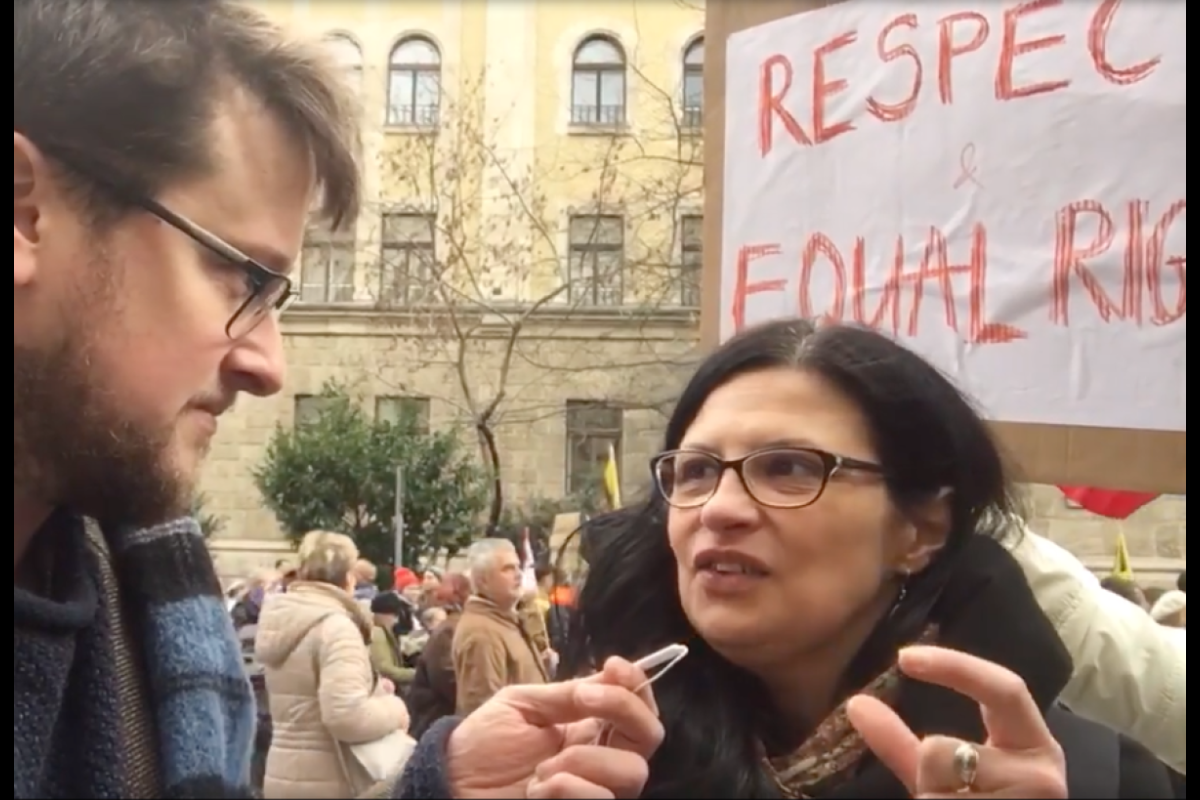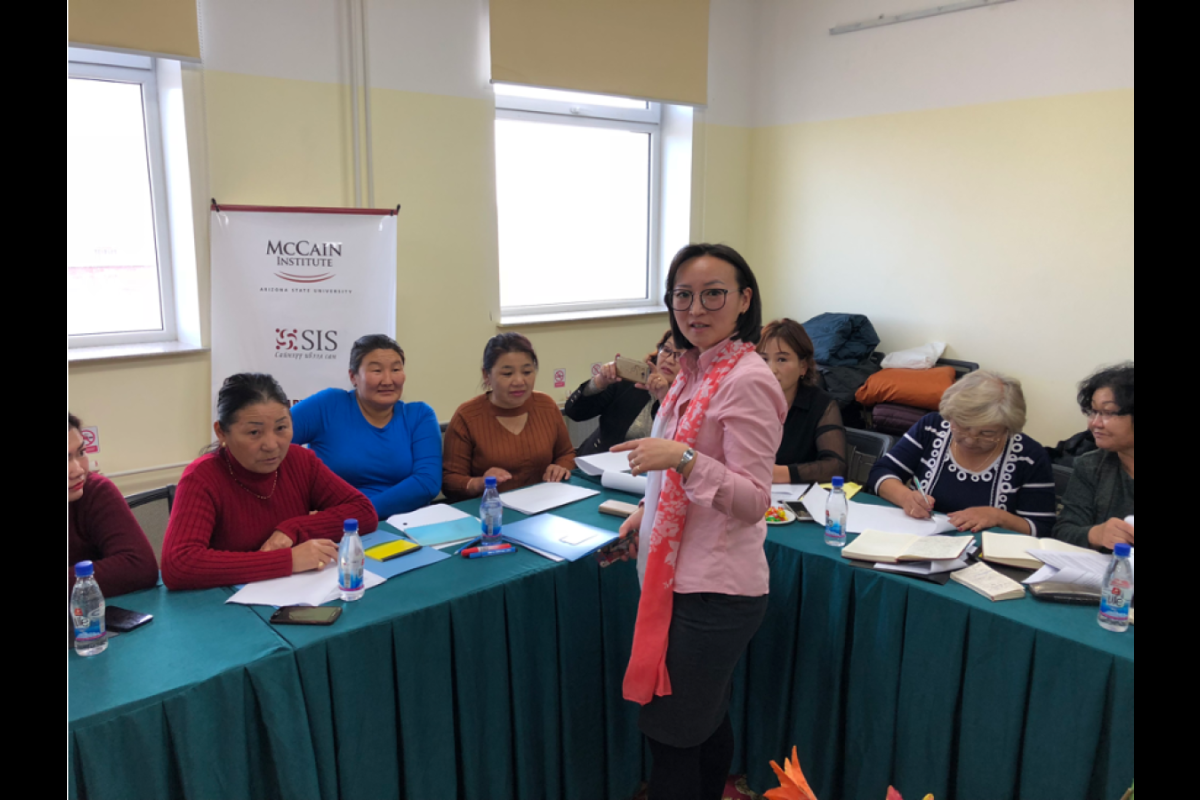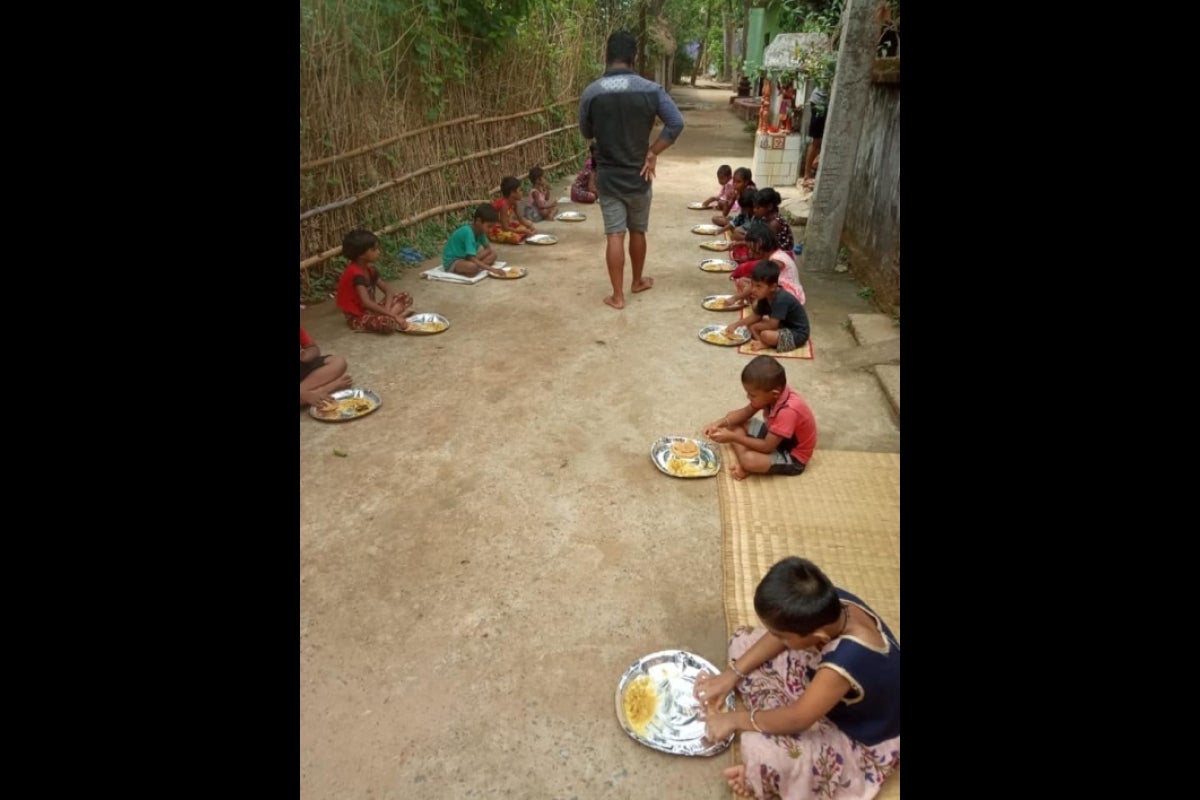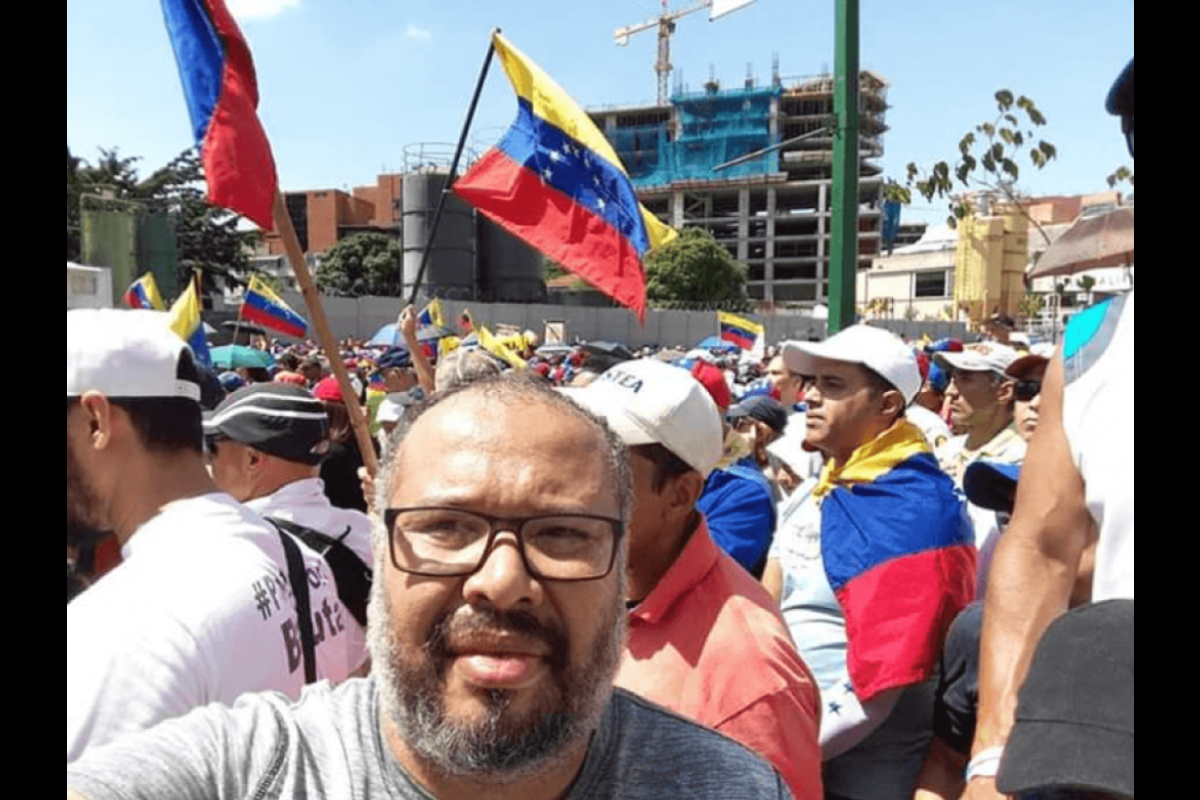After graduating with the 2015 cohort, McCain Institute for International Leadership Next Generation Leader (NGL) Mohammed Al Tarawneh returned to his home country of Jordan with goals to promote democratic engagement and create a safe space for Jordanian youth in political and social expression while preserving the national identity of the country.
Using the McCain Institute leadership development model, Al Tarawneh has achieved substantial success by incorporating the Train the Trainer program into his NGO Blue Umbrella’s mission. In the past year and a half, Blue Umbrella launched a leadership training project that has trained over 1,200 youth to date, and has now become one of the most prominent leadership programs in Jordan.
The McCain Institute has granted the 2020 Catalyst Grant to Al Tarawneh and three other NGLs — Mira Koroma Dumbaya (Sierra Leone, 2017 cohort), Aliz Pocsuvalszki (Hungary, 2019 cohort) and Gantuya Sainkhuu (Mongolia, 2018 cohort) — to continue the support of character-driven leadership development.
Catalyst Grants support and encourage top achievement in the implementation of an NGL’s Leadership Action Plan — a strategy each NGL develops during their program year that brings about positive change in their home communities.
"Being a Catalyst Grant winner is not just a privilege, but it's a commitment to continue my leadership journey,” Al Tarawneh said. “It's a clear message from the McCain Institute family that my passion to lead and serve is recognized and admired. In this critical time, solidarity and support are essential and help us to empower youth and implement the leadership activities for the young leaders of Jordan in the schools and to make these aspirations a reality."
With this Catalyst Grant, Al Tarawneh will continue to expand and diversify his leadership development efforts to an even younger audience, establishing a Leaders Club in high schools across Jordan and a leadership training center for Jordan’s refugee population.
See how the 2020 winners will use their Catalyst Grants and keep up with past recipients on the McCain Institute website.
The Institute also awarded nine NGLs with the COVID-19 In The Arena Grant to support and encourage their leadership around the world in the adversity of the pandemic.
Vimal Kumar, an NGL from India (2020 cohort), is the founder of Movement for Scavenger Community (MSC) an organization committed to the eradication of manual scavenging in India and bringing education and awareness to the existing scavenger community. To date, MSC has established six Jai Bhim centers that have provided 15,000 people with free meals in the poorest communities, working together with upper caste members through collective community action.
These areas house the majority of those affected most by the COVID-19 lockdown: essential workers, such as sanitation laborers, and the now-jobless residents, such as domestic sweepers.
“Our activities related to the education classes are paused nowadays, but communities are looking towards us for the help,” Kumar said. “In this difficult situation, I am my community’s leader, and I can’t sit silent. So we have to stand with the community to support them for food and safety gear.”
Kumar will use his micro-grant to purchase safety tools like gloves, masks and soap for the essential workers and food for the jobless families.
As the coronavirus pandemic continues to spread around the world, another virus, albeit not a pathogen, has emerged. This is the virus of disinformation, a tool often used by authoritarian and rogue governments to try and sow confusion among their adversaries at home and abroad. As we have seen, U.S. and European efforts to clamp down on disinformation spread by the likes of Russia and China has been met with mixed results.
NGL Leon Hernandez (2017 cohort) has been engaged in this battle in his home country of Venezuela. There, the regime of Nicolas Maduro has used misinformation and fake news to deflect from his inadequate response to the virus’ impact on the Venezuelan people. Launching daily reports on specific cases of spreading fake news, Hernandez and his organization, Observatorio Venezolano de Fake News, have detected more than 600 individual cases of deliberate fake news since its June 2019 launch.
However, with the coronavirus taking aim at the already-ailing Venezuelan people, his work (now from home) is more important than ever. Not only has Hernandez been at the forefront of identifying misinformation, he has also been speaking out about how everyday citizens can recognize it for themselves.
“The fight against disinformation is part of this duty of creating a model of communication for democracy, because the education and promotion of a cleaner public opinion, one based on real facts, are needed to improve the awareness about the manipulation of information that is established by dictatorships and socialists regimes,” Hernandez said.
While information about the pandemic is scarce and contradictory, Hernandez will generate five publications that provide documented information and dismantling fake news circulating in Venezuela to better inform citizens and give journalists tools to fight disinformation.
In Ethiopia, Judge Selamawit Girmay Birhane (2019 cohort) focuses her goals on children. Since the outbreak of COVID-19 and the closure of schools, children have been left in more vulnerable to various dangers including the virus. Birhane took the initiative to convene a meeting with the neighborhood association and community police to make a plan on how to address 600 households’ needs.
“As a result, our association executive committee is now mobilizing to donate basic food and safety materials for those who are affected by the current crises,” Birhane said. “We have already set an optimized intervention standard, which can optimally sustain the family for one month and keep our community safe through minimizing the possible causes for spread of COVID-19.”
With this micro-grant, Birhane expects to supply families with food, sanitation materials and personal protective equipment.
Six more NGLs received the COVID-19 In The Arena Grant for pandemic relief efforts in their communities: Ezzeddine Ben Rhima (Tunisia, 2017 cohort), Dael Dervishi (Albania, 2017 cohort), Ljubomir Filipović (Montenegro, 2019 cohort), Sahana Mishra (India, 2015 cohort) and Jerlie Requerme (The Philippines, 2020 cohort).
See how the 2020 winners will use their micro-grants on the McCain Institute website.
About the McCain Institute for International Leadership at Arizona State University
Inspired by the character-driven leadership of Sen. John McCain and his family’s legacy of public service, the McCain Institute implements programs and initiatives to make a difference in people’s lives across a range of critical areas: leadership development, human rights, rule of law, national security, counterterrorism and combatting human trafficking. More information can be found here.
Headquartered in Washington, D.C., the institute is proudly part of ASU, the largest public university in America — ranked No. 1 in innovation for five years running.
More Health and medicine

New initiative aims to make nursing degrees more accessible
Isabella Koklys is graduating in December, so she won’t be one of the students using the Edson College of Nursing and Health…

Reducing waste in medical settings
Health care saves lives, but at what cost? Current health care practices might be creating a large carbon footprint,…

ASU offers bilingual counseling to Spanish speakers
Arizona is one of the five states in the nation with the highest percentage of Hispanic residents, according to the U.S.…








